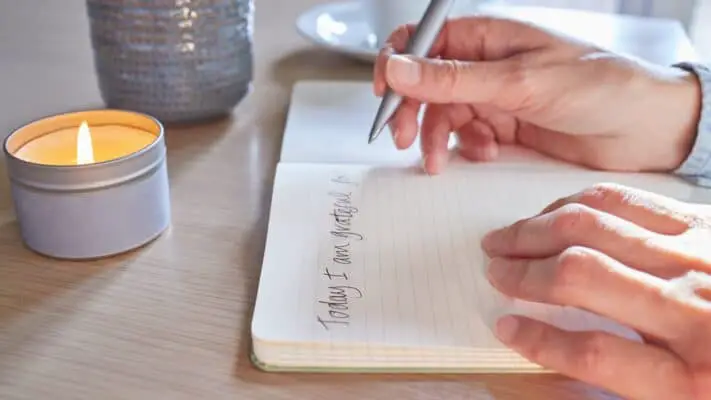
In a world that often seems obsessed with pairings, being single can sometimes be misunderstood as a sign of lacking, rather than an opportunity for growth, self-discovery, and independence. In fact, the single chapter of life can be a liberating and enriching experience, a precious time of exploration and personal evolution. For the modern woman navigating the maze of singlehood, the adventure can be equally thrilling and challenging. This space of unattached existence can serve as the perfect canvas for you to sketch the contours of your unique identity, and to paint the vibrant colors of your individuality on it.
As we delve into this comprehensive guide designed explicitly for single women, we’re inviting you to embark on a journey. A journey that will take you through the landscapes of introspection, the terrain of independence, the nurturing environment of self-care, and the intimate pathways of building a healthy relationship with yourself. We will arm you with strategies for cultivating resilience and a growth mindset, and guide you on how to harness your strengths while constructively navigating your weaknesses.
This guide isn’t about celebrating or denouncing singlehood; instead, it’s about recognizing it as a significant part of your life journey. It’s about understanding that being single can become a wellspring of self-discovery, and a launching pad for self-empowerment. And most importantly, it’s about knowing that you are enough, just as you are. So, buckle up, and get ready to rediscover yourself.
Section I: The Journey to Self-Discovery
The journey of self-discovery is perhaps one of the most important voyages that one undertakes in a lifetime. This journey, woven with introspection, awareness, acceptance, and transformation, does not lead you to a destination. Instead, it helps you understand the journey itself – the one that you are on. For the single woman, this journey is a priceless opportunity to delve deep into the self, free from the often-complicated dynamics of a relationship.
Understanding the Importance of Self-Discovery
At its core, self-discovery is about knowing oneself intimately – your desires, fears, dreams, strengths, and weaknesses. This exploration is crucial as it forms the foundation of your self-esteem and self-worth. It’s about discovering what makes you tick, what lights your fire, what soothes your soul. Self-discovery is the compass that guides you in making decisions that align with your true self, leading to a life filled with authenticity and fulfillment.
Furthermore, the process of self-discovery encourages personal growth. As you learn more about yourself, you find areas you wish to improve or change. This pursuit of personal development can lead to an enriched life experience and a profound sense of self-worth.
The Self-Discovery Process: Introspection, Awareness, Acceptance, and Transformation
The journey of self-discovery may seem daunting, but breaking it down into stages makes it more approachable.
- Introspection: This is the first step where you consciously take out time to ponder over your thoughts, feelings, and beliefs. It’s like holding a mirror to your inner self and examining it closely.
- Awareness: This step is about becoming conscious of what you discover during introspection. It’s about identifying patterns, acknowledging emotions, and recognizing personal truths.
- Acceptance: This phase involves embracing all facets of yourself, both pleasant and not-so-pleasant. It’s a conscious commitment to accept yourself as you are without judgment.
- Transformation: Once you’ve introspected, gained awareness, and accepted yourself, you’re in a prime position to transform the areas of your life that you wish to change.
Practical Exercises for Introspection
While introspection is a personal process, here are some practical exercises to kickstart your journey:
- Journaling: Putting your thoughts on paper can be an enlightening exercise. It allows you to vent your feelings and offers a safe space to be honest with yourself. You can start by writing about your day, your dreams, or any recurring thoughts. Over time, you may start to identify patterns or themes in your entries, revealing deeper aspects of your psyche.
- Self-Reflection Prompts: These are questions designed to ignite introspection. Some prompts to start with could be: “What are three things I value most in life?” or “What are the fears that hold me back?” or “What qualities do I admire in others?” Reflecting on such questions will provide insights into your core values, fears, and aspirations.
- Meditation: The practice of meditation involves focusing your mind and eliminating the stream of jumbled thoughts crowding your mind. Regular meditation can provide clarity, reduce stress, and promote self-awareness. There are several meditation techniques and apps to guide beginners on this path.
Self-discovery is a powerful, transformative journey that every single woman should embrace. It’s about turning your gaze inward to understand who you truly are at your core. This process, often facilitated through introspection, awareness, acceptance, and transformation, is the key to personal growth. Through practical exercises like journaling and self-reflection prompts, you can start this journey, uncover your authentic self, and set the stage for the life you truly desire. This process may be challenging, but it’s undeniably rewarding.

Section II: The Power of Independence
Often, independence is mistaken for solitude. However, independence is not about isolating oneself or standing alone; it is about self-reliance and the ability to function autonomously. Independence is a powerful virtue that boosts self-confidence, resilience, and ultimately, self-esteem.
Exploring the Concept of Independence: What it Means and Why it Matters
Independence is the state of being self-reliant. It means taking charge of your life, making your own decisions, and taking responsibility for the consequences. It’s about having the ability to stand on your own, not out of necessity, but out of choice. It’s about being confident in your abilities, being able to take care of your needs, and, above all, being comfortable in your own company.
Why does independence matter? It allows you to live according to your values, making decisions that align with your beliefs and needs. It strengthens your inner core, instilling resilience and adaptability. Independence fosters personal growth, encourages self-awareness, and cultivates self-respect. It is not only empowering but also liberating.
How Singlehood Offers a Unique Opportunity to Cultivate Independence
Being single offers an unparalleled platform for fostering independence. It provides an opportunity to know who you are outside the context of a relationship and to develop self-reliance.
Singlehood provides a chance to develop your identity, unfettered by the influence of a partner. It is an opportunity to make decisions – big or small – based on your wants and needs. This autonomy can bring a deep sense of fulfillment and satisfaction.
Being single also means managing your own finances, which can strengthen your financial independence. It gives you the freedom to set your own financial goals, create a budget, manage your expenses, and plan for the future.
The Role of Independence in Boosting Confidence and Self-Esteem
The sense of achievement that comes from being able to navigate life independently can significantly boost your confidence and self-esteem. Whether it’s making a decision, reaching a personal goal, or overcoming a challenge independently, each success story reaffirms your capabilities, strengthens your self-belief, and builds your self-esteem.
5 Strategies for Fostering Independence
Cultivating independence can be an exhilarating journey. Here are some strategies to help you foster independence:
- Decision-Making: Start by making small decisions independently. It could be as simple as choosing what to eat for dinner or deciding your workout routine. Gradually, as you become more confident, take charge of bigger decisions.
- Financial Independence: Understand your financial situation, set financial goals, make a budget, and stick to it. Consider speaking with a financial advisor or taking a financial literacy course to gain more knowledge.
- Skill Development: Identify areas where you depend on others and try to develop those skills. It could be anything from cooking, managing home repairs, or understanding taxes.
- Emotional Self-Reliance: This involves managing your emotions independently. Practicing mindfulness, self-reflection, and emotional intelligence can help in developing emotional self-reliance.
- Setting Boundaries: Learning to set and maintain boundaries is a crucial aspect of being independent. It allows you to protect your energy, time, and emotional space.
More: Healthy Boundaries for Women – The Ultimate Guide >>
To sum it up, independence is not just a state of being, but a state of mind. It is about having the confidence to make your own choices and the belief that you have the capability to navigate your life’s journey. Singlehood presents a unique opportunity to foster and grow this sense of independence.
Section III: The Importance of Self-Care
An essential aspect of living independently is taking care of oneself. Self-care is a broad term that encompasses everything you do to maintain or improve your mental, emotional, and physical well-being. It’s not just about bubble baths and spa days, although they can certainly be part of it. It’s about nurturing yourself in all the ways that matter, giving yourself the attention and care that you need to thrive.
Defining Self-Care and Its Impact on Mental, Emotional, and Physical Well-being
Self-care refers to practices that individuals undertake intentionally in promoting their physical, mental, and emotional health. It encompasses a broad range of activities and practices that fuel your well-being, restore your health, and reduce stress.
Self-care’s impact is profound and multifaceted. It improves your physical health, reducing the risk of diseases and enhancing your vitality. It boosts your mental health by mitigating stress, anxiety, and depression, thereby promoting better cognitive function and mental clarity. In terms of emotional health, self-care nurtures positive emotions and helps in better emotional regulation, resulting in improved emotional stability and resilience.
Common Misconceptions about Self-Care
Unfortunately, several misconceptions can often cause people to neglect self-care. Let’s dispel a few of them:
- Self-Care is Selfish: In reality, self-care is about preservation, not selfishness. Taking care of your health and well-being allows you to be there for others more effectively.
- Self-Care is a Luxury: Many think of self-care as indulgent spa days or expensive vacations. While these can be forms of self-care, it’s not limited to these. It’s about daily habits that enhance your well-being.
- Self-Care is Time-consuming: It can be as simple and quick as taking deep breaths, drinking plenty of water, or spending a few minutes each day on a hobby you love.
Creating a Self-Care Plan
To take care of yourself effectively, it’s essential to develop a comprehensive self-care plan, which includes:
- Nutrition: A balanced diet fuels your body and mind. Incorporate a variety of fruits, vegetables, whole grains, lean protein, and healthy fats into your meals.
- Exercise: Regular physical activity is key to maintaining good health and reducing stress. Find an activity you enjoy—whether it’s dancing, cycling, yoga, or simply walking.
- Mental Health: Activities like meditation, journaling, or therapy can support your mental health. Ensure to spend some time each day doing things you enjoy.
- Rest: Adequate sleep and relaxation are crucial for your well-being. Establish a regular sleep schedule and create a relaxing bedtime routine.
- Social Connections: Maintain strong relationships with friends and family. Reach out to your loved ones, and make time for social activities.
Creating a Personalized Self-Care Routine
Creating a personalized self-care routine involves identifying your unique needs and preferences and incorporating them into your daily life. Here are a few steps to help you create your routine:
- Identify Your Needs: What makes you feel relaxed, energized, and loved? It could be spending time in nature, cooking a healthy meal, or reading a good book.
- Plan Your Activities: Once you’ve identified your needs, plan your self-care activities. It could be daily, weekly, or monthly, depending on the activity.
- Create a Schedule: Make sure your self-care activities are part of your daily routine. Prioritize them just as you would any other important appointment.
- Be Flexible: Your self-care routine should be flexible. It’s okay to adjust it based on how you’re feeling and what you need at any given moment.
Self-care goes far beyond indulgent treats and pampering. It is a holistic approach to well-being that addresses mental, emotional, and physical health. It’s a necessary component of life that impacts your overall well-being and quality of life. You are your own primary caregiver, and looking after yourself is not selfish – it’s necessary.

Section IV: Building a Healthy Relationship with Yourself
Among the most important relationships you will ever have is the one with yourself. It’s the foundation upon which all other relationships are built. A healthy relationship with yourself enriches your life experience, builds resilience, and most importantly, paves the way for healthier relationships with others.
The Significance of Developing a Healthy Relationship with Oneself
Cultivating a healthy relationship with oneself involves recognizing and valuing one’s worth, setting and maintaining appropriate boundaries, and treating oneself with kindness and respect. The benefits of such a relationship are manifold: it boosts your confidence, improves your mental health, drives personal growth, and fosters emotional resilience.
Importantly, how you view and treat yourself influences how you allow others to treat you. A positive self-relationship equips you to demand respect and fair treatment from others, setting the stage for healthier interpersonal relationships.
How to Practice Self-Love and Self-Compassion
Self-love and self-compassion are crucial components of a healthy relationship with yourself. Self-love means treating yourself with the same kindness, patience, and understanding you’d extend to a loved one. It’s about celebrating your strengths and accepting your weaknesses.
Self-compassion, on the other hand, involves acknowledging your suffering, understanding that pain and failure are part of the human experience, and offering comfort and kindness to yourself. Here are a few practices that can help:
- Mindfulness: Be present and conscious of your thoughts and feelings without judgment.
- Positive Affirmations: Use affirmations to reinforce your worth and capabilities.
- Forgiveness: Understand that everyone makes mistakes, including yourself. Learn from them and move on.
The Impact of Self-Relationship on Future Romantic Relationships
The relationship you have with yourself sets the tone for all other relationships in your life. If you treat yourself with kindness, respect, and compassion, you’re more likely to attract partners who will do the same.
Healthy self-relationship also allows for better communication, emotional stability, and conflict resolution in your romantic relationships. It encourages the setting of healthy boundaries, ensuring you do not lose your identity or compromise your values and needs in a relationship.
5 Strategies for Strengthening the Relationship with Oneself
Building a healthy relationship with yourself requires continuous effort. Here are some strategies to help you along the journey:
- Positive Affirmations: Repeating affirmations can reinforce positive self-perceptions and beliefs. Phrases like “I am enough,” “I am strong,” or “I deserve happiness” can make a significant impact on your self-image.
- Setting Boundaries: Setting boundaries is crucial for self-preservation. It involves communicating your needs clearly and standing up for yourself when these needs are not met.
- Practice Self-Care: As we’ve explored earlier, self-care routines go a long way in promoting self-love and respect.
- Invest in Personal Growth: Continual learning and personal development can increase self-confidence and self-respect.
- Practice Gratitude: Cultivate a habit of acknowledging and appreciating the good things about yourself and your life.
To summarize, establishing a healthy relationship with yourself forms the bedrock of personal satisfaction and fulfillment. It’s a journey that starts with self-love and self-compassion, gradually leading to a profound sense of self-worth. This relationship sets the tone for how you’ll interact with others, including potential romantic partners. Therefore, investing in practices like positive affirmations, setting personal boundaries, and regular self-reflection can dramatically enhance your relationship with yourself. At the heart of it all, remember that you are your longest commitment and cultivating this relationship is key to a thriving singlehood and beyond.
Section V: Growth Mindset and Resilience
As you embark on the journey of self-discovery and personal growth, two fundamental concepts will serve as your guides: growth mindset and resilience. Understanding these and implementing them in your life can drastically enhance your personal development.
Understanding the Concept of a Growth Mindset and Its Role in Personal Development
A growth mindset is a belief that abilities and intelligence can be developed over time. It’s an understanding that your skills are not static but can be improved with consistent effort and practice. This mindset plays a crucial role in personal development by fueling a continuous desire to learn, adapt, and grow.
The power of a growth mindset lies in the understanding that failures and setbacks are not definitive of your worth or capabilities, but opportunities for learning and improvement. It promotes persistence in the face of challenges and encourages curiosity and the pursuit of mastery.
How to Develop Resilience During Singlehood
Resilience is the capacity to recover quickly from difficulties. It’s a trait that allows you to face challenges head-on, learn from them, and bounce back stronger than before.
Singlehood provides a unique opportunity to develop resilience. Without the emotional and logistical complexities that come with a relationship, you have the chance to focus solely on personal growth. The trials and tribulations that you face – and overcome – in your life as a single woman can foster resilience.
Building resilience involves maintaining a positive attitude, focusing on self-care, and seeking support when needed. It’s about developing coping mechanisms that help you navigate life’s ups and downs.
6 Tools and Strategies for Cultivating a Growth Mindset:
Cultivating a growth mindset involves changing the way you perceive challenges and progress. Here are some strategies that can help:
- Embrace Challenges: Instead of avoiding challenges, see them as opportunities for learning and growth. They push you out of your comfort zone, fostering personal development.
- Value the Process Over the Outcome: Don’t focus solely on the end result. Appreciate the learning and growth that occurs during the process.
- Celebrate Progress, No Matter How Small: Every step forward, however small, is a step towards growth. Celebrate your progress to reinforce your growth mindset.
- Learn from Mistakes: Failures and mistakes are not setbacks but important learning opportunities. Instead of feeling defeated by them, analyze what went wrong and how you can improve next time.
- Seek Feedback: Constructive feedback is a great tool for personal growth. It provides you with a different perspective and helps you identify areas of improvement.
- Practice Persistence: Persistence is key to growth. Even when things get tough, continue to push forward.
By integrating these strategies into your life, you can nurture a growth mindset, fostering a constant pursuit of self-improvement. Simultaneously, by developing resilience, you equip yourself with the strength to withstand and grow from the challenges life throws at you. Combined, a growth mindset and resilience create a robust framework for personal development, enabling you to thrive during singlehood and beyond.

Section VI: Harnessing Your Strengths and Navigating Weaknesses
One of the most empowering aspects of self-discovery is understanding your personal strengths and weaknesses. Acknowledging these facets of your personality enables you to leverage your strengths and turn your weaknesses into opportunities for growth.
The Importance of Understanding Personal Strengths and Weaknesses
Understanding your strengths allows you to capitalize on areas where you naturally excel, enhancing your self-confidence and self-efficacy. Recognizing your weaknesses, on the other hand, helps you identify areas where you can improve. This understanding fosters self-awareness, a vital component of emotional intelligence and personal development.
How to Identify Personal Strengths and Capitalize on Them
Identifying personal strengths often requires introspection and self-analysis. You can start by reflecting on your past achievements and what skills or traits contributed to them. Alternatively, you could ask trusted friends, family, or colleagues for their perspectives.
Once identified, here are some strategies to capitalize on your strengths:
- Apply Them: Actively seek opportunities to use your strengths, whether in your work, your hobbies, or your personal life.
- Develop Them: Continually hone and develop your strengths. Remember, even natural talents can be improved with practice.
- Celebrate Them: Recognize and appreciate your strengths. Give yourself credit for what you do well.
Strategies for Recognizing Weaknesses and Turning Them into Growth Opportunities
Identifying weaknesses can be more challenging as it requires a level of self-awareness and humility. However, it can be achieved through self-reflection, feedback from others, or even through professional assessments.
Once recognized, these strategies can help you navigate your weaknesses:
- Acknowledge Them: Accepting your weaknesses is the first step towards improvement.
- Learn from Them: Every weakness holds a lesson. Understand what these areas of improvement teach you about yourself.
- Address Them: Develop a plan to work on your weaknesses. This could involve learning new skills, seeking advice, or practicing more.
- Reframe Them: View your weaknesses as growth opportunities. Each one represents a chance to learn, grow, and become a better version of yourself.
recognizing your strengths and understanding your weaknesses is a critical step in personal growth and resilience. By identifying and harnessing your strengths, you can significantly enhance your confidence and self-efficacy. Equally important is the ability to acknowledge your weaknesses and view them not as failures but as opportunities for growth and improvement. Navigating these aspects of your personality is a challenging yet rewarding process that can immensely contribute to your journey of self-discovery while enjoying your singlehood.
Final Thoughts
Throughout our exploration of the single woman’s journey, we’ve touched on many pivotal points, from the transformative power of self-discovery to the practice of self-care, from embracing independence to nurturing a relationship with oneself, and from fostering a growth mindset to harnessing one’s strengths. But remember, these elements are not separate chapters in a book; they are interconnected pieces of a larger puzzle that forms the complete picture of you.
Our journey in singlehood is not a waiting period before the next relationship. It’s a unique and empowering life stage that serves as a foundation for your growth and evolution. The solitude that singlehood offers isn’t about loneliness; it’s about gaining clarity, establishing your independence, and forging an intimate relationship with your inner self. It’s about acknowledging and accepting your strengths and weaknesses, and using them as stepping stones for growth and self-improvement.
Yet, this journey isn’t a sprint, but a marathon that requires patience, persistence, and lots of self-love. And throughout this journey, you are not alone. There are numerous resources, strategies, and tools available to guide you, many of which we’ve discussed in this article.
Now, the time has come for you to apply these strategies in your life, not tomorrow, not the day after, but starting today. Embrace your singlehood as an opportunity for self-discovery. Take those self-reflection prompts and explore your inner thoughts. Exercise your independence in your decisions and actions. Prioritize self-care and treat it as your daily ritual. Practice self-love and set boundaries that protect your energy. Adopt a growth mindset and remember, every step forward, no matter how small, is a victory.
In conclusion, singlehood is not a stage to merely pass by. It’s a potent catalyst for change, self-discovery, and personal growth. So, I encourage you to seize this opportunity. Embrace your journey, embrace your evolution, embrace your singlehood, for it is the soil from which the most beautiful version of you can grow. Start today, start now. You owe it to yourself.















